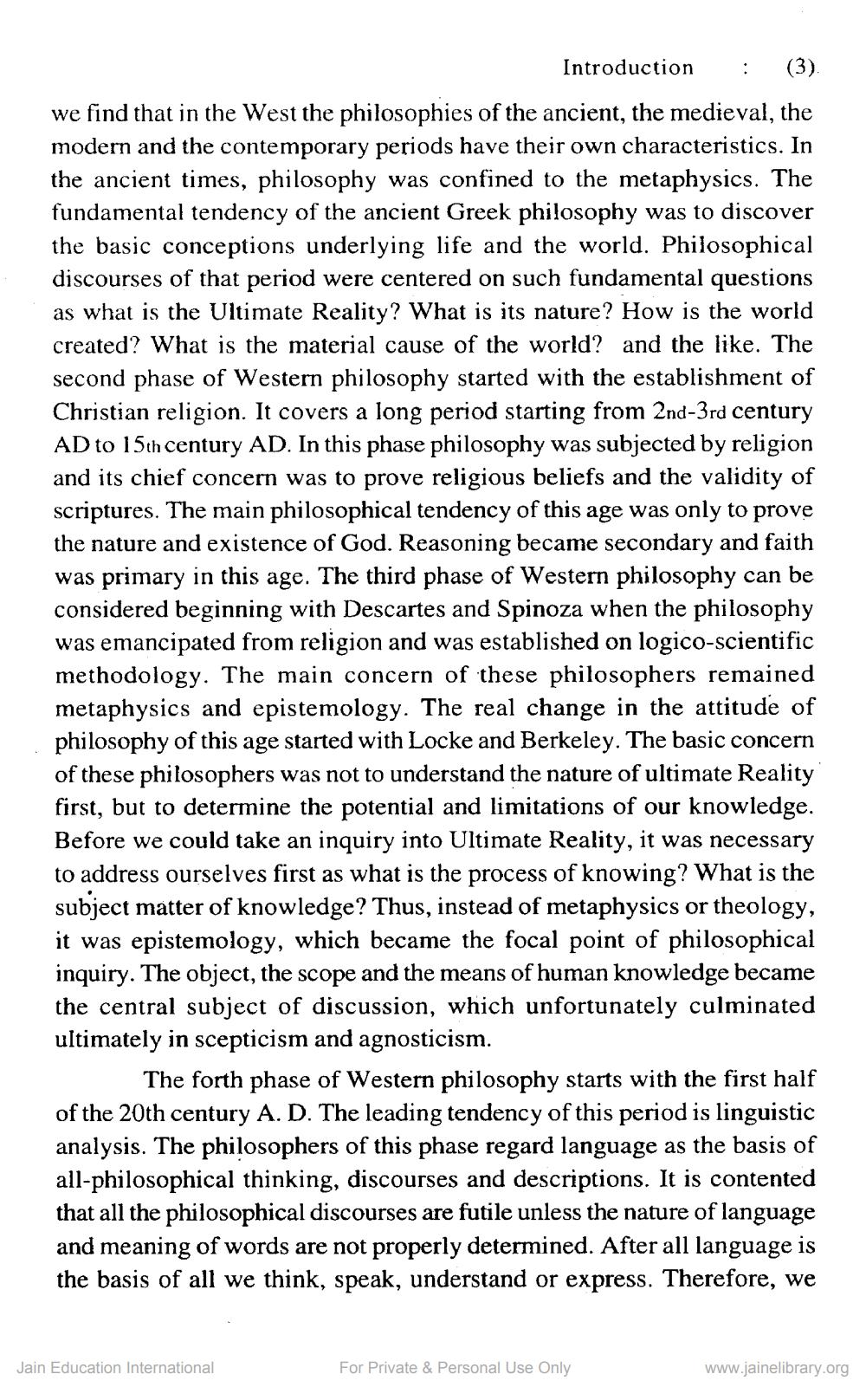________________
Introduction ; (3). we find that in the West the philosophies of the ancient, the medieval, the modern and the contemporary periods have their own characteristics. In the ancient times, philosophy was confined to the metaphysics. The fundamental tendency of the ancient Greek philosophy was to discover the basic conceptions underlying life and the world. Philosophical discourses of that period were centered on such fundamental questions as what is the Ultimate Reality? What is its nature? How is the world created? What is the material cause of the world? and the like. The second phase of Western philosophy started with the establishment of Christian religion. It covers a long period starting from 2nd-3rd century AD to 15th century AD. In this phase philosophy was subjected by religion and its chief concern was to prove religious beliefs and the validity of scriptures. The main philosophical tendency of this age was only to prove the nature and existence of God. Reasoning became secondary and faith was primary in this age. The third phase of Western philosophy can be considered beginning with Descartes and Spinoza when the philosophy was emancipated from religion and was established on logico-scientific methodology. The main concern of these philosophers remained metaphysics and epistemology. The real change in the attitude of philosophy of this age started with Locke and Berkeley. The basic concern of these philosophers was not to understand the nature of ultimate Reality first, but to determine the potential and limitations of our knowledge. Before we could take an inquiry into Ultimate Reality, it was necessary to address ourselves first as what is the process of knowing? What is the subject matter of knowledge? Thus, instead of metaphysics or theology, it was epistemology, which became the focal point of philosophical inquiry. The object, the scope and the means of human knowledge became the central subject of discussion, which unfortunately culminated ultimately in scepticism and agnosticism.
The forth phase of Western philosophy starts with the first half of the 20th century A. D. The leading tendency of this period is linguistic analysis. The philosophers of this phase regard language as the basis of all-philosophical thinking, discourses and descriptions. It is contented that all the philosophical discourses are futile unless the nature of language and meaning of words are not properly determined. After all language is the basis of all we think, speak, understand or express. Therefore, we
Jain Education International
For Private & Personal Use Only
www.jainelibrary.org




